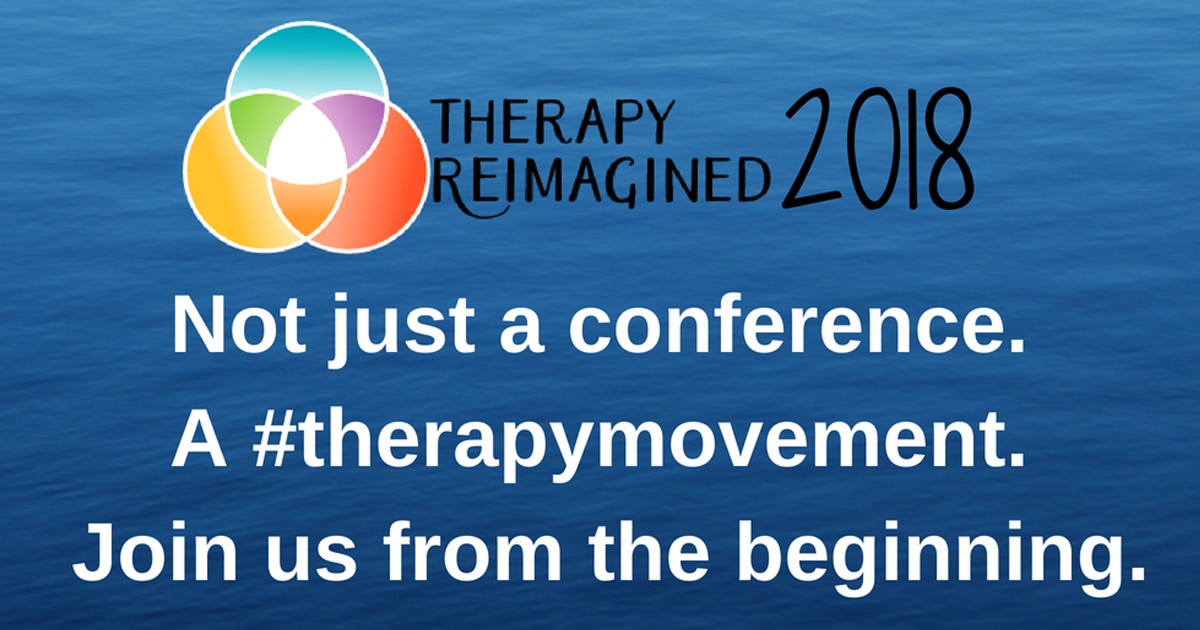We Need To Practice What We Preach
We Need To Practice What We Preach

We Need To Practice What We Preach
KATIE VERNOY, MS, MFT
Imagine a woman slouching on your therapy couch with exhaustion rolling off of her. She talks about 6 or 7-day work weeks, toiling away late into the evening with little or no down time. She’s slightly overweight and her complexion is sallow. She fantasizes about sleep. She says she loves her work, but is worried she doesn’t have the energy to keep doing it. She knows she needs to take care of herself and worries about her health, but just isn’t able to find the time to do something about it. She explains that she frequently takes on additional work below her usual rate (and she’s having trouble covering her bills), but also says that she isn’t in it for the money. She just wants to help people. She frequently misses family events because of her work schedule and feels isolated and alone. She’s burning out and doesn’t know how to turn it around.
I see this so often and I want to scream out, “Stop it! Take care of yourself – you only have one you! How can you help others if you can’t take care of yourself?!?”
As therapists, it is easy to think about how we might approach this client (in a much more appropriate and non-directive way):
“I wonder what keeps you from taking care of yourself?”
“You value your family, what keeps you from spending time with them??”
“What meaning do you get from your work… and are you still finding this meaning if you’re fantasizing about sleep?”
“What are your goals? Do these actions (focusing on work to the exclusion of self-care, health, and family) support your goals?”
You get the picture.
We know how to address this when these are someone else’s problems. BUT, when we look at this and recognize ourselves in the woman on the couch, some of us get defensive, looking at all the ways that our situation isn’t the same. Some of us feel the same feelings of hopelessness. (And then judge ourselves, which isn’t helpful either.)
Some of us even revel in the semi-martyrdom: We’re sacrificing ourselves for the greater good!
But we really aren’t. If we burnout, leave the profession, get kicked out, or work ourselves to death, we aren’t helping anyone. I’ve seen too many therapists think about dramatically changing careers because they’re burned out. I’ve read too many “spider pages” disciplinary actions related to therapists making bad calls and/or falling into drug and alcohol abuse. I’ve heard horror stories about heart disease and adrenal fatigue.
Our work is hard – we really need to take care of ourselves. Or else.
Fortunately, we know what to do. We “just” need to practice what we preach.
A few reminders:
1. Keep firm with your health and wellness practices. Everyone is important and needs care, even you. I know it is tempting to sneak a client in (they’re in crisis!) or stare at the screen finishing paperwork or chatting with folks on Facebook, but self-care is required. If you don’t eat, drink water, sleep, and exercise appropriately, you’ll spend more time out sick or destroy your body.
2. Take a time out when you need to. Personal days, vacations, etc. are important to plan regularly, so that you get the renewal you need. Make sure you also take breaks throughout the day to refresh and reset. Naps are totally on the table, but so are quick walks outside or even stepping away from your screen or office for a minute to meditate or just breathe. Do whatever you need to get the reset you require. Therapy is brain and emotion intensive – we need this rest to be our most effective.
3. Set limits and boundaries on what you will and won’t do. You can’t help everyone. When you try to help everyone, you actually help fewer people. Know what you do best, what you’re called to do, and set limits on (or say no to) the rest. This includes how many sliding scale or pro bono clients you take on as well as how much volunteer work you do. It also includes “crisis” sessions and reschedules. Your time and energy are precious commodities that you are throwing at everyone who asks. Stop it!
4. Get on the couch. We know the value of therapy and yet some of us don’t take advantage. We need to make sure that we’re taking care of our emotional and mental health as well as our clients are. I have been in therapy longer than most of my clients. I know that this valuable time each week helps me to be a stronger, more empathic therapist. It also keeps me from losing my $#!t when I’ve had a week of really tough sessions. Enough said.
5. Don’t judge yourself. This is the hardest one. We know what to do, but we’re human beings. We aren’t always going to do what we “should” to care for ourselves. And that’s okay. My point in writing this article is to remind us not to consciously or unconsciously sacrifice ourselves to help others. However, what I call Sacrificial Helping Syndrome – it’s super common. We don’t want to judge ourselves for it, but we do want to get better at taking care of ourselves, so we don’t burnout.
6. Get support and training for you as a whole-person therapist. There are a lot of trainings that can teach you new techniques and cutting-edge interventions. But you can’t implement these amazing strategies effectively if you’ve sacrificed yourself into illness, the poor house, or the grave. Make sure that you include training about how you can be a stronger professional and business owner. These skills are not typically taught in grad school and are critical for us to be able to provide client care long-term.
I know you know this, but too many of us frequently have our self-care fall to the wayside. I get it – these are challenges that I talk about with my own therapist. But, if we don’t find the best ways to take care of ourselves, we won’t be able to keep doing our important work. And that’s not okay with me. As helping professionals, we support our communities by improving quality of life, helping people to develop healthier relationships, and teaching families and groups how to engage in effective dialogues that move us forward as a society. This is too important to sacrifice because we don’t take care of ourselves.
We’ve got to do this.
Are you with me?
To join Katie on her mission to help therapists create meaningful AND sustainable careers: Take a listen to her weekly podcast, The Modern Therapist’s Survival Guide, where she and her co-host, Curt Widhalm, talk about navigating #moderntherapistproblems. You can also join her in real life, on October 5th and 6th in the Los Angeles area to talk about how to strengthen our profession, improve our business acumen, and embrace ourselves as whole-person therapists: Therapy Reimagined 2018. It’s more than just a conference, it’s a #therapymovement. We’re hoping you can join us from the beginning. As an AATBS community member you can use the promo code TBH2018 to get $20 off the full conference.



